Your cart is currently empty!
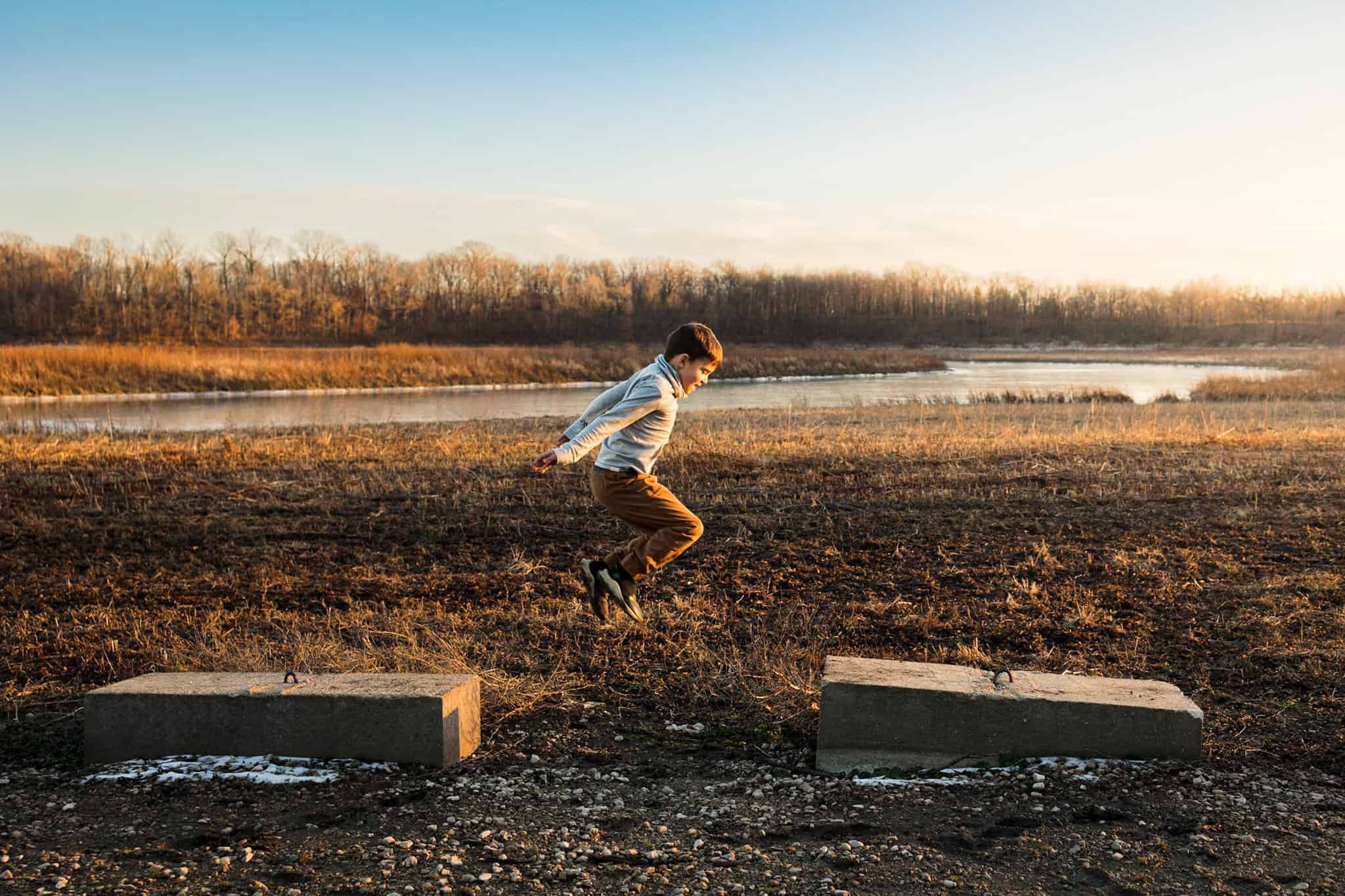
10 Outdoor Activities to Build Confidence in Kids
Instilling confidence in our children has become more crucial than ever. As parents, we strive to nurture our kids’ emotional resilience and self-assurance that will empower them to face life’s challenges head-on. One powerful way to cultivate confidence is through outdoor activities. Nature has an unparalleled ability to nurture not only our physical well-being but also our mental resilience, communication prowess, and problem-solving skills. By developing in each of these areas, kids gain confidence in what they can do and what they’re capable of. Today, Meghan Garriott, Illinois mom of three, is here sharing how outdoor adventures can be the key to building confidence, and fostering a sense of self-assurance and empowerment. She’ll explore the importance of raising confident kids and delve into 10 outdoor activities designed to boost kids’ self-esteem, enhance their physical abilities, and refine their communication and problem-solving skills.
Building confidence
It’s hard to know how to raise confident children, when a lot of us, as adults, are still struggling to be confident ourselves. It’s called building confidence because it happens a little at a time as we are exposed to different situations. Every child is different and will have different boundaries and communication styles. Learning those and leaning into them will help us, as parents, find easy ways to build their confidence daily.
Being confident in different situations can lead to high self-esteem. Children with high self-esteem, look for opportunities, have a positive outlook on life, make healthy decisions, and tend to feel more fulfilled in life. Isn’t that exactly what we want for our kids? But how do we get there? How do we put it into practice?
That’s what we’re talking about here today. Let’s discover the transformative impact that outdoor adventures can have on your child’s self-esteem and confidence. Let’s create a foundation for their future success by fostering a sense of belief in themselves and their abilities today. Below, you’ll find 10 outdoor activities that are great for increasing kids’ confidence in their physical ability, as well as confidence in their communication and problem-solving skills.
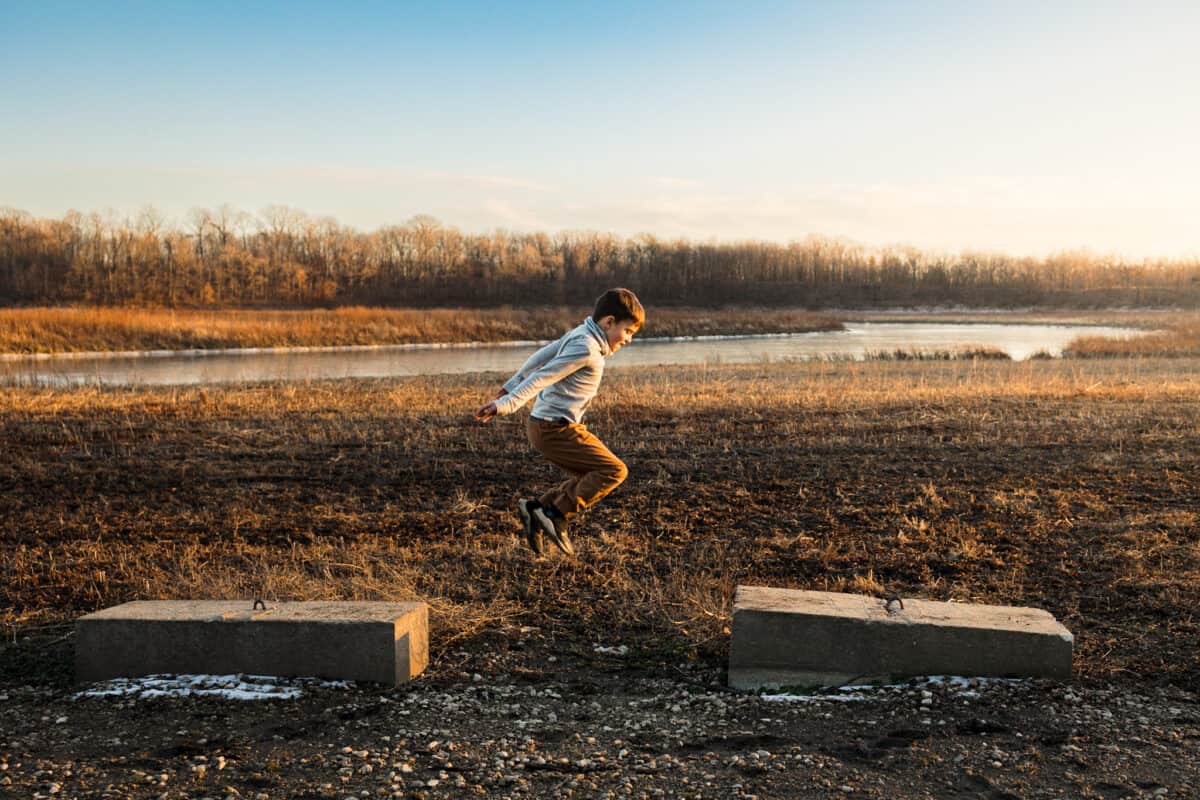
Mental health in kids
Recently, you may have heard that children around the world are experiencing a mental health crisis. The number of children experiencing anxiety or depression has been greatly increasing over the last 20 years, with a huge uptick over just the last five years. The decline in children’s mental health can be attributed to a multitude of complex factors. Rapid technological advancements, that, while offering connectivity, have also ushered in unprecedented social pressures and heightened feelings of inadequacy and social comparison. Additionally, the ongoing societal changes, such as the pandemic and its disruptions to routines, social interactions, and learning environments, have significantly impacted children’s emotional well-being.
Confidence and self-esteem have a direct relationship to anxiety and depression. When a child’s confidence is low, they can have difficulty trusting others, feel self-doubt, and feel unloved or unlovable. These feelings cause children to be less outgoing, take fewer opportunities, and have difficulty setting personal boundaries.
Confidence affects mental health
Building a child’s confidence and self-esteem early has a direct effect on their current and future mental health. A child who has a positive self-image and confidence is better equipped to navigate life’s challenges, build meaningful relationships, and cope with stressors.
Early experiences of success and positive reinforcement contribute to a resilient mindset, fostering the ability to face setbacks with resilience. And there’s no better place to have powerful and meaningful experiences than outside!
Moreover, children with high self-esteem are more likely to engage in healthy social interactions, seek support when needed, and approach new opportunities with a sense of capability. This early investment in their emotional well-being not only sets the stage for a more content and secure childhood, but also serves as a protective factor against mental health challenges that may arise later in life.
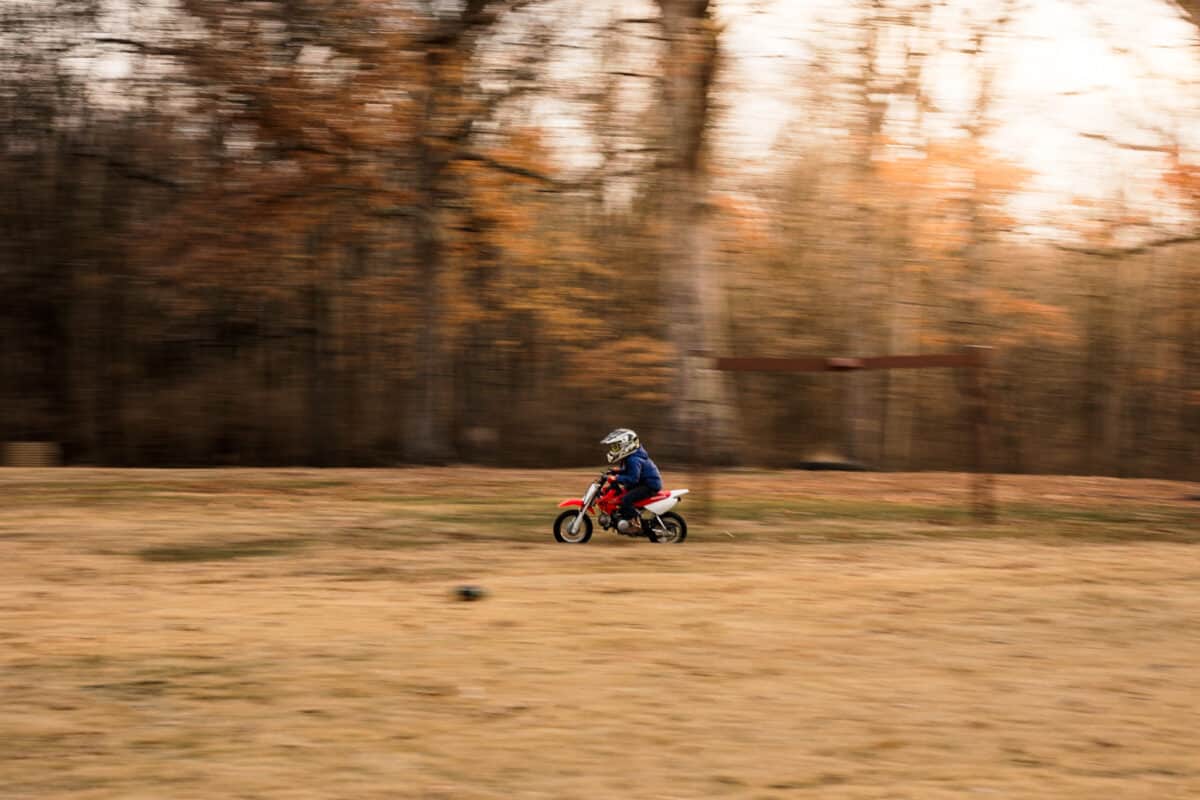
Confidence and self-esteem
By definition, confidence and self-esteem are two different things, but are very much intertwined with each other. Confidence is a person’s attitude about their own capabilities and skills in different situations. Self-esteem is how we value and perceive ourselves as a whole.
While confidence is situation-specific, self-esteem encompasses a more global sense of self. These two attributes work hand in hand to create a holistically healthy child. A child with high self-esteem is more likely to approach various aspects of life with a positive self-regard, laying the groundwork for confidence in specific endeavors. Having confidence in different situations and multiple areas of our lives, can lead to improved self-esteem.
Together, confidence and self-esteem form a powerful synergy, nurturing a child’s resilience, adaptability, and emotional well-being across diverse facets of their lives.
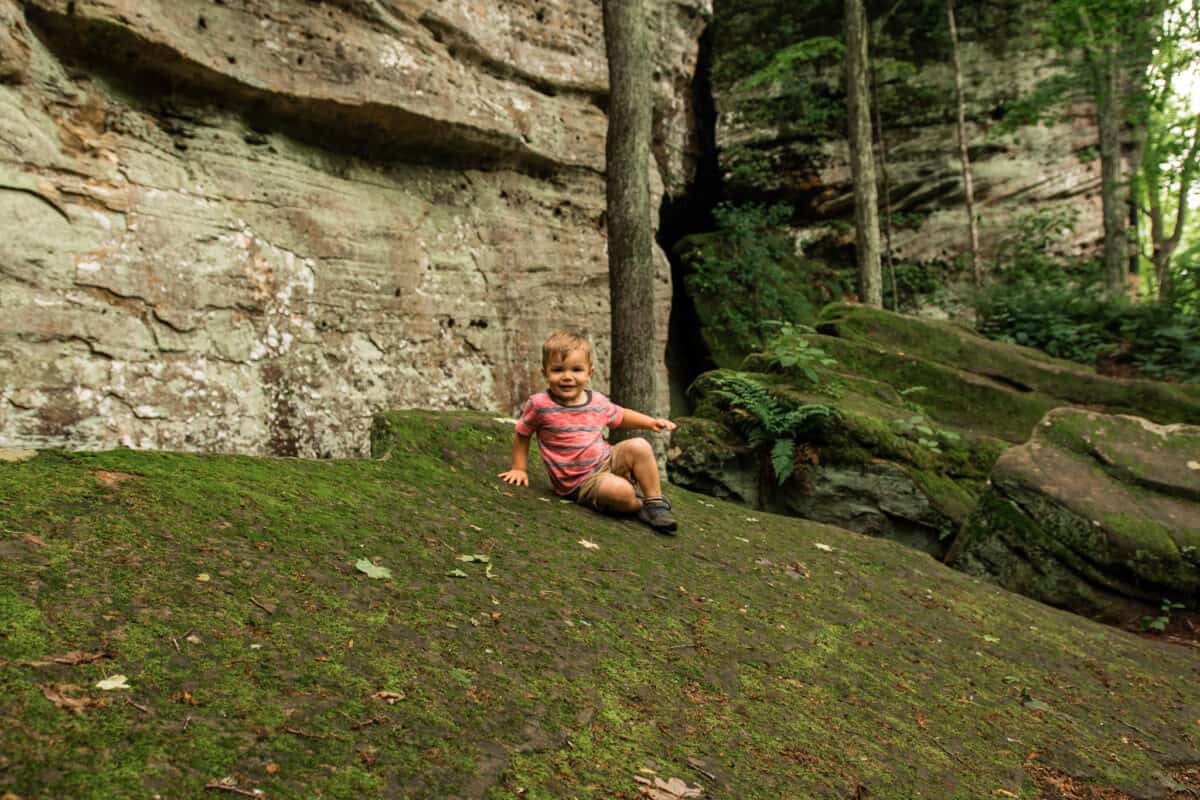
10 outdoor activities for building confidence
Getting kids outside gives them a unique and dynamic environment that serves as a natural catalyst for building confidence. Unlike indoor settings, outdoor spaces provide an expansive and unstructured area for exploration, physical challenges, and social interaction.
Outdoor activities often involve a degree of unpredictability, encouraging children to adapt, problem-solve, and take risks in a more natural context. The open-ended nature of outdoor play promotes creativity and decision-making, instilling a belief in one’s capabilities that transcends specific activities and contributes to a more robust and generalized sense of confidence.
Here are ten outdoor activities that will help kids build confidence and self-esteem.
1. Walk (and talk)
Yep, it can be as simple as taking a walk and talking. Getting outside and away from distractions can make it easier to talk to your kids. I know most of my most meaningful conversations with my kids happen on the hiking trail. Outside, we are not distracted by screens, or chores, or other daily tasks. And walking next to each other and talking is a little less intimidating than face-to-face conversations with full eye contact. Your walks don’t have to be big, long hikes. They can be a walk to the mailbox, a walk around the block, or taking the dog for a walk.
Talking to kids, asking open-ended questions, and having an open line of communication with them gives them the confidence to speak up. During these “walks and talks,” you and your child can talk through problems, work through feelings, or just talk about the next day’s plans. As your child shares their thoughts and experiences, they not only strengthen their connection with parents but also develop essential communication skills. Knowing that their thoughts, ideas, and opinions are heard and valued (and knowing that they have a supportive space to express themselves) fosters a sense of self-worth and confidence in their own voice.
No matter what you talk about, just giving them a time and a place to talk openly, will help them build their confidence and communication skills.
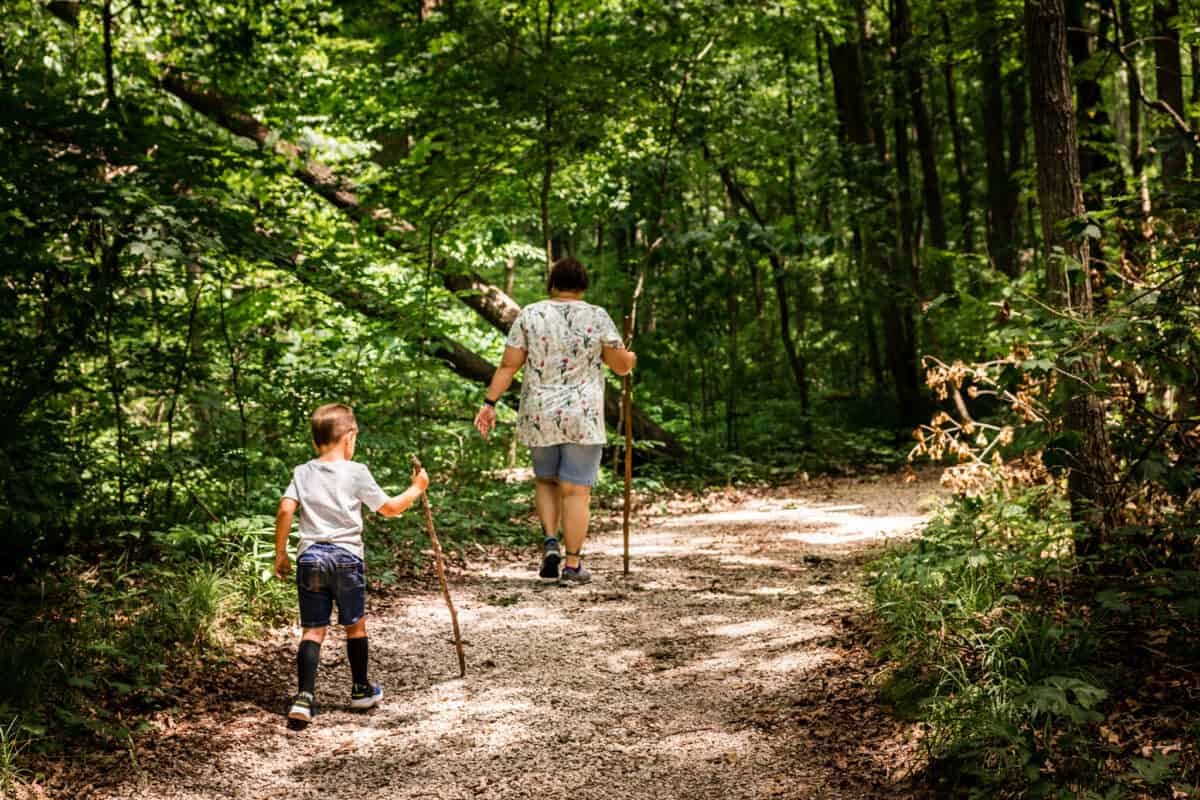
2. Climbing (big or small)
Climbing is a great all-around confidence booster for kids. Small rocks and ledges are good enough for smaller kids. Increase size and difficulty as appropriate as children get older.
This activity doesn’t have to be anything big or dangerous. It can be as simple as scrambling over the rocks at your local park, or as big as a rock wall or Alpine Tower. Climbing takes focus and problem-solving, to figure out how to get up these often uneven surfaces.
There is a lot of pride that comes with finishing a mentally and physically difficult task like climbing. This pride is a building block for confidence in their own problem-solving and physical strength abilities.
To learn more about the benefits of climbing, and different ways to start, check out these articles on Benefits of Climbing Structures for Kids and How to Get Started Rock Climbing with Kids
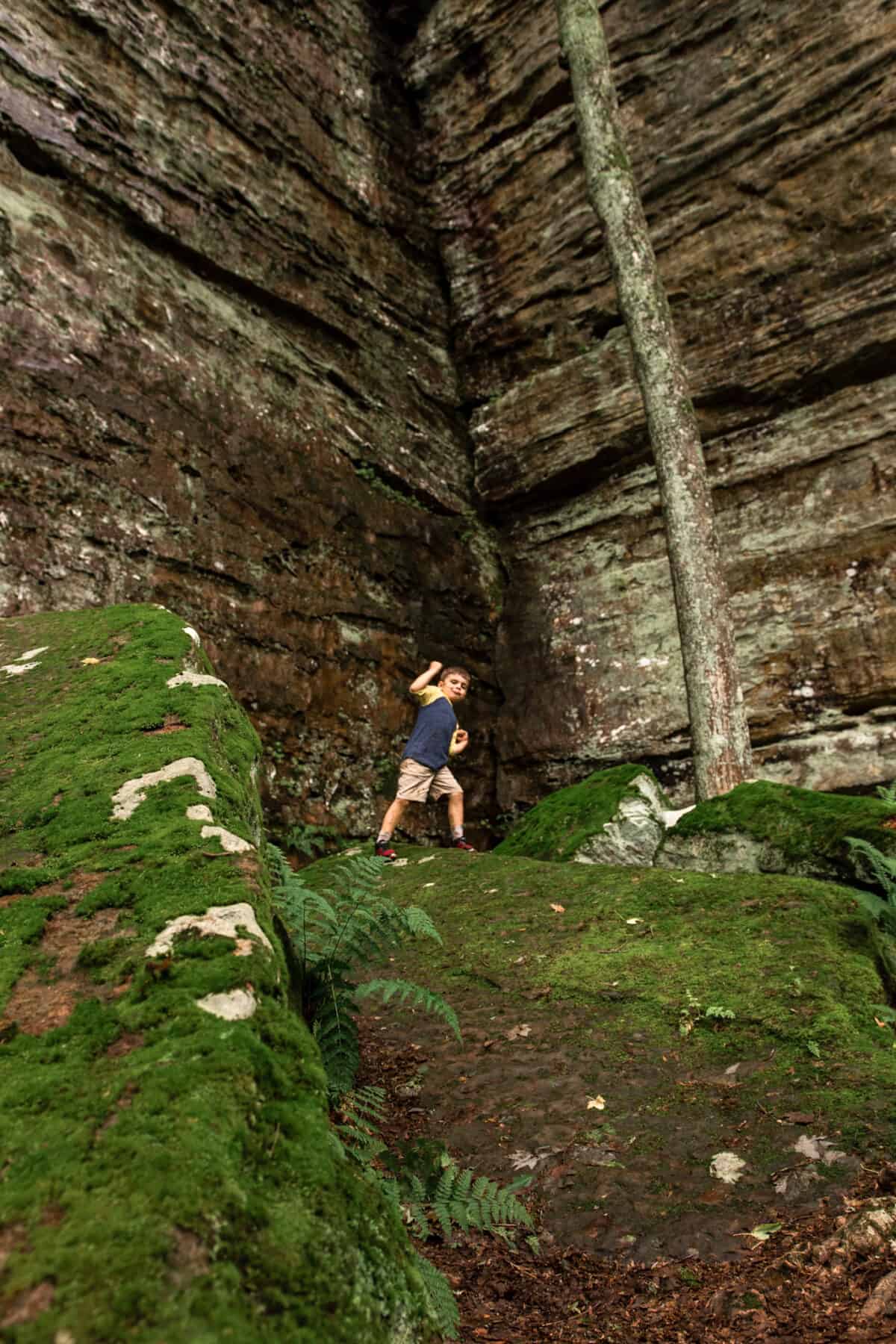
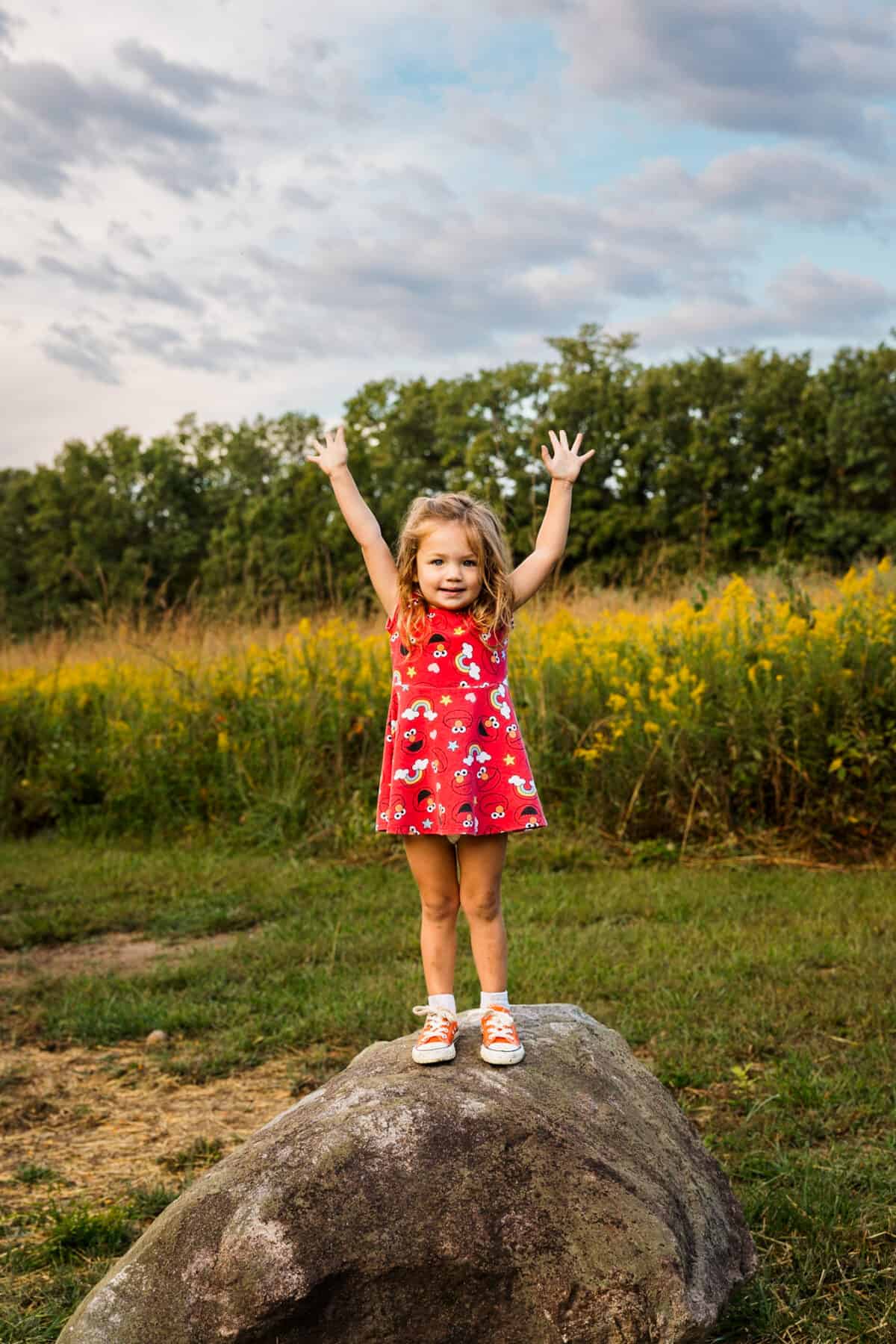
3. Volunteering (yardwork)
Kids always feel better about themselves when they’re able to help. Knowing that you can do something valuable to help others gives you a deep, rooted confidence. Engaging in volunteer activities can provide them with opportunities to contribute to their neighborhoods or communities and make a positive impact. As kids actively participate in helping others, they develop a sense of purpose and accomplishment. The act of giving back reinforces the idea that their efforts matter, instilling a sense of value and importance.
Volunteering to do yardwork for a neighbor or family friend is an easy way to get started volunteering and get OUTSIDE. This is a great entry-level way for kids to begin to feel comfortable helping others. Children of any age can help by picking up sticks, raking leaves, sweeping sidewalks, or shoveling snow. As kids get older, they can help with more difficult tasks like mowing yards and trimming hedges. Not only will they feel better about themselves for helping others, but they will also be learning how to do valuable skills that they will need to use later on in life.
For more information, check out our full post on how to get started volunteering with kids.
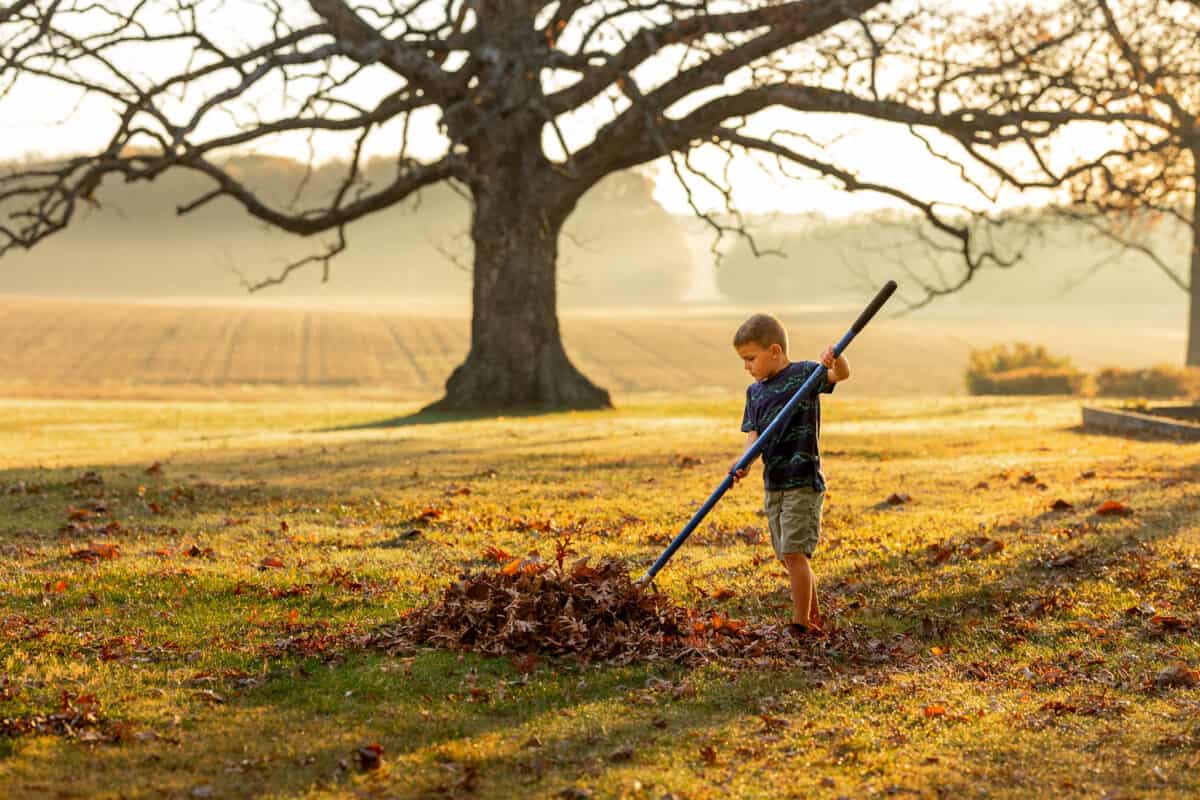
4. Join or organize an outdoor playgroup
Joining or organizing an outdoor playgroup is a great way to make new friends of different ages and abilities. Having friends to play with outside, can boost confidence by teaching children new and creative ways to play. Group play teaches kids how to communicate and work together with others, which can build confidence in teamwork. Having other kids around to applaud, even the smallest achievements, like going down the slide or running really fast, can really help kids feel special and build their confidence and their physical abilities.
Don’t know where to find an outdoor playgroup (or interested in creating your own)? Check out our full post on how to organize an outdoor playgroup.
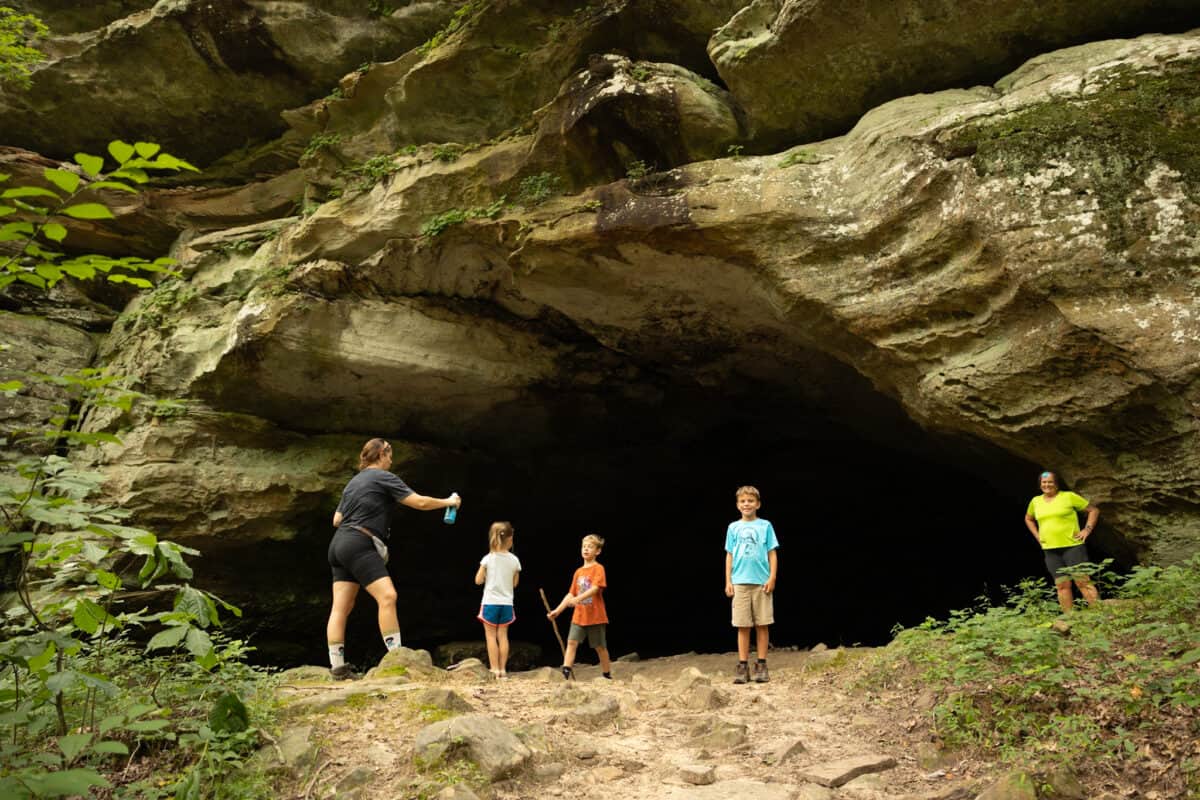
5. Lawn games
Lawn games can come in many forms, like cornhole (or bags, depending on where you are from), horseshoes, yard darts, or maybe even ladder golf. These games are often done in pairs, but they can also be practiced alone. Lawn games are relatively inexpensive and can be done by many different ages and abilities.
Involving kids in outdoor lawn games alongside adults can give them a sense of belonging and help them learn healthy competition. Winning a game like this when paired with an adult helps children feel bonded with that adult and pride in their skills, which helps to build confidence.
There is also confidence in learning how to lose a game, and not being scared to begin a game just because you might lose. Lawn games also teach children how to work together with another person, which will help build their confidence in their own role as a teammate.
For more ideas, check out our full post on Outdoor Games to Get Kids Off Screens.
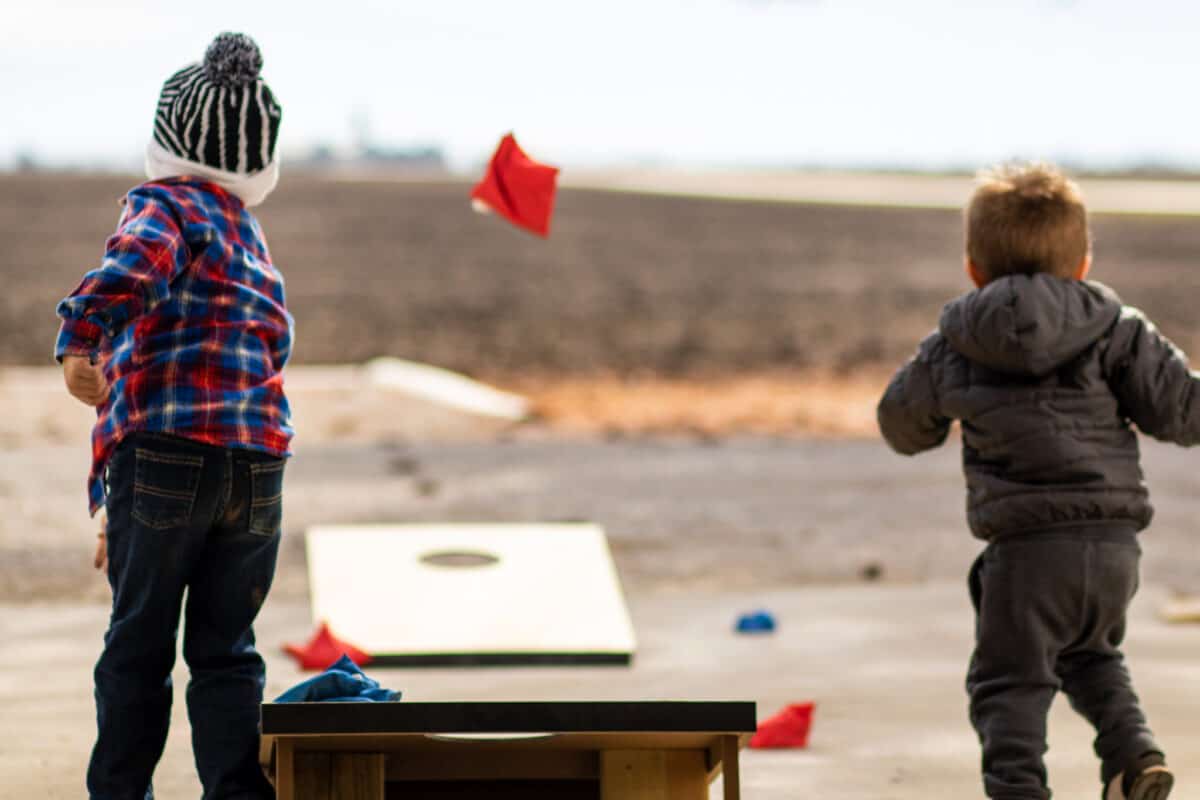
6. Model positive self-talk during a difficult activity
This may seem like an easy activity (or not even an activity at all), but I have found that practicing positive self-talk when outside on any of your adventures can be one of the more difficult ones. It may not be a specific activity, but it’s something you can do and practice any time you’re outside doing an activity.
As parents, we may give our children a lot of encouragement and praise, but we often forget to talk kindly to ourselves. Our kids see and hear that. Our voices become our children’s inner voices. If we talk kindly and encouragingly to ourselves and about ourselves while we’re out exploring or trying new things, they will do the same.
Your outer voice becomes their inner voice
Next time you are tasked with a difficult chore or are embarking on a new or difficult task, try to talk yourself through it out loud. Be positive and honest with yourself. Try to say things like, “this might be really hard, but I think I can do it,” or “I’ve never played this game before, but learning will be fun”. Yes, it will feel awkward at first, but you should talk to yourself like you want your child’s inner self to talk to themselves. You might be surprised to hear your words echoed back just a few minutes later.
It’s important to show our children that even grown-ups can get nervous to try new things. Show them that you have self-doubt, but that you also have the tools to hype yourself up. This will give them the confidence to talk themselves into a positive headspace when trying something new or difficult. Children will likely have a voice in their head, as we all do, giving them doubt in new or difficult situations. A parent’s voice of encouragement and positivity will always drown out that doubt as long as you say those things out loud often enough.
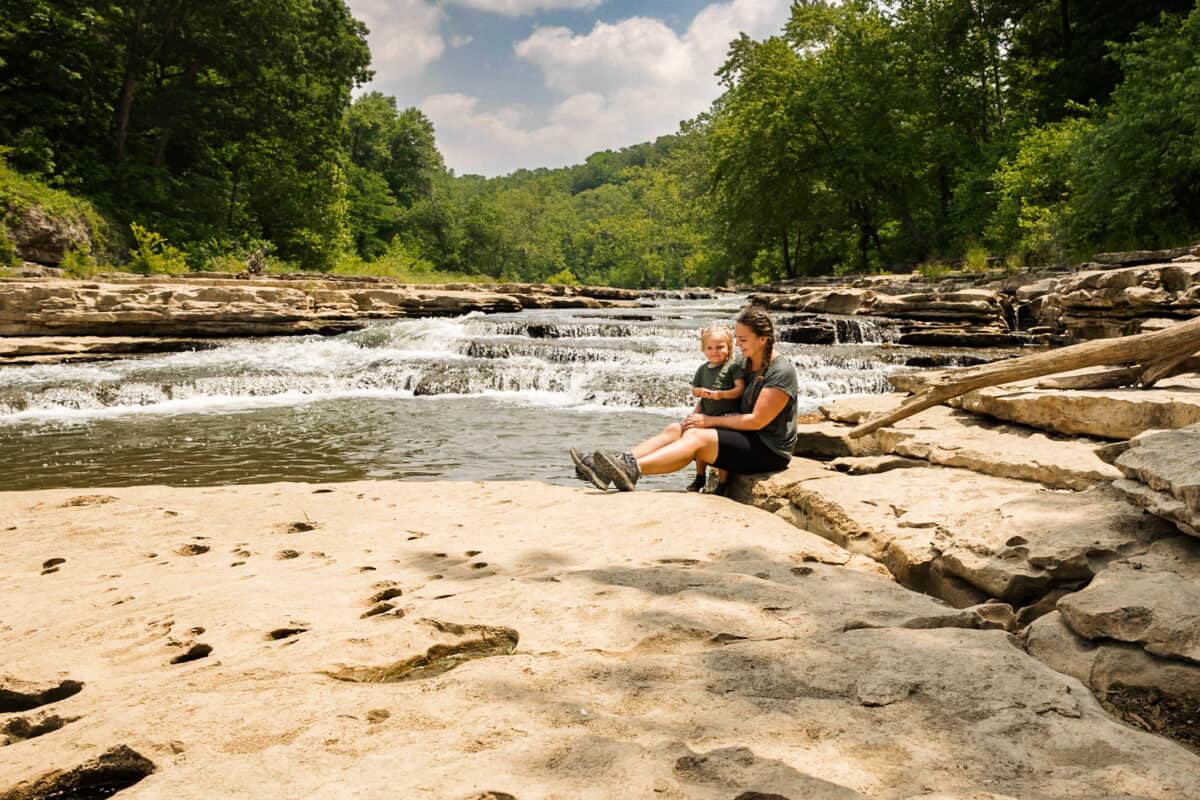
7. Practice and praise
Most kids probably have a sport or recreational activity that they enjoy doing or may want to get into. Showing interest in their chosen activity and encouraging their efforts is a huge confidence booster.
Practice doesn’t always have to be about improving their technical skill each time – it can be just about having fun together. Take your child outside to the backyard, the local basketball court, or the baseball field. Ask them what they like to work on. During these practices, you and your child can become better at giving encouragement and receiving encouragement.
Refrain from giving feedback
Notice how I didn’t say “feedback” or “constructive criticism” there. Sometimes, it’s best to leave the correction of technical things to the coaches or let them figure things out for themselves. As parents, sometimes it can be hard to correct instead of just being their biggest cheerleader. If you’re in the backyard, playing catch, or shooting hoops, try not correcting ANY mistakes and ONLY praising their achievements.
Sports aren’t just a physical game. There’s a big mental component to playing many of these words. Confidence when shooting the ball or up to bat is a huge part of the game. I guarantee the more they practice and the more you praise them, the better they will get (as opposed to practice alone).
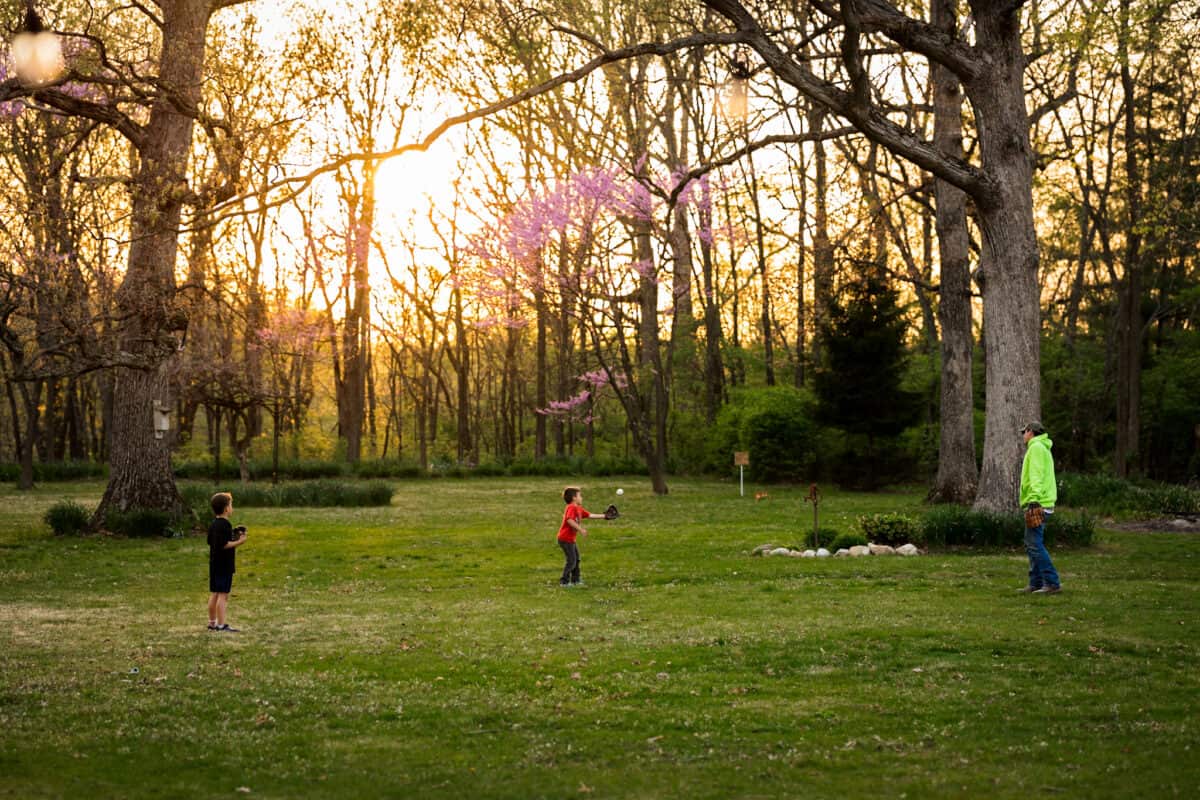
8. Try something new together
Trying something new is always a little scary. Doing new things together with your child can build a foundation for overcoming fears and enjoying new experiences. This can be as easy as going to a new park and trying a new piece of playground equipment, or starting a new activity like bike riding. Trying something new can also set them apart from their peers and give them confidence in knowing they are different or have a different skill set.
My son started sailing this summer. No one in our family knows how to sail, and none of his friends do either. He got a big confidence boost, talking about his experience sailing and teaching others what sailing is and how to do it.
Once you try something new and realize, “Oh, this can be kind of cool,” you’re more likely to try new things more often. Taking that first big step with your kid teaches them how to try new things within the comfort zone that you give them. I love this article about having a “try new things” mindset
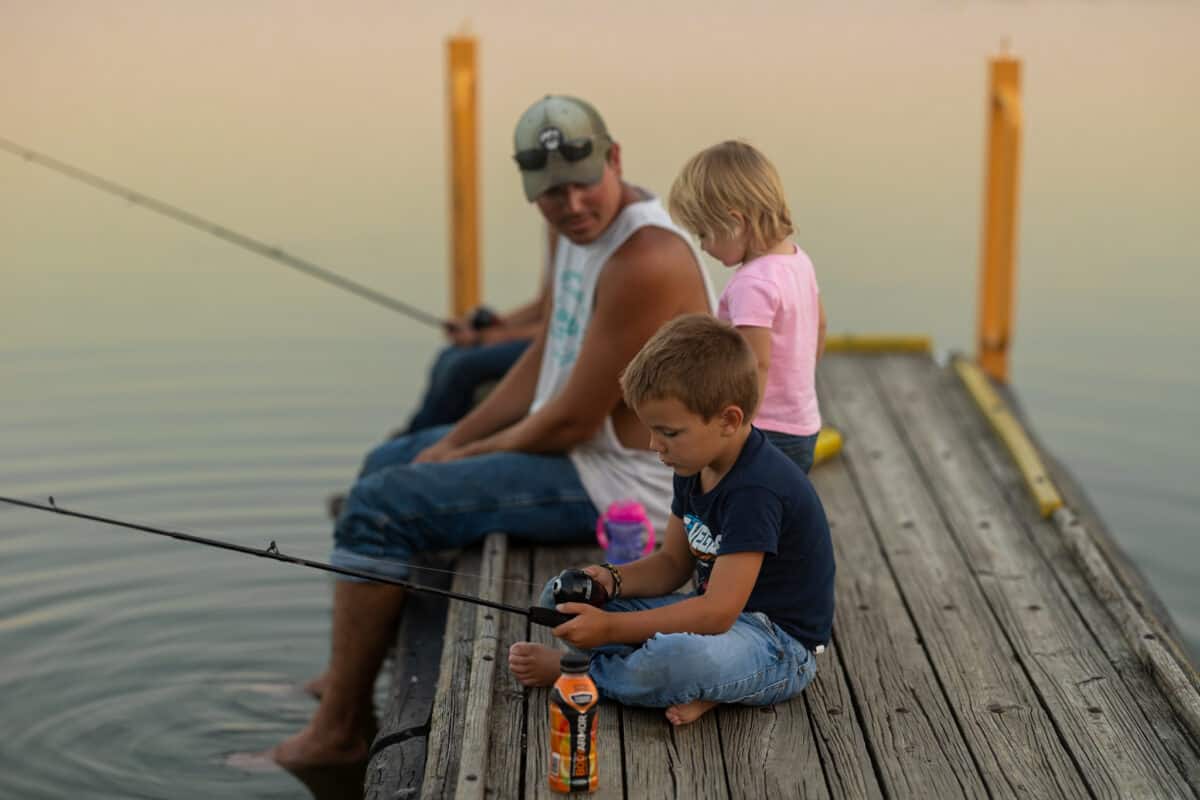
9. Animal training
Animal training can be a great way to build confidence in a leadership role for your child. This could be anything from riding a horse, training a dog, or learning to show livestock. All of these activities involve assertiveness, giving direction, and taking responsibility for another being. While being in charge of an animal can give confidence in leadership, it also gives the child a friend and a source of comfort all in one.
A few years ago, my son and I spent a day learning how to train retrieving dogs with some friends of ours. It was amazing to see my shy and quiet son blossom and become loud and commanding as he learned how to take charge of the dogs. If you decide this approach might be great for you and your child, check out our full post on dog training with kids and this great informational post on the benefits of raising kids around animals.
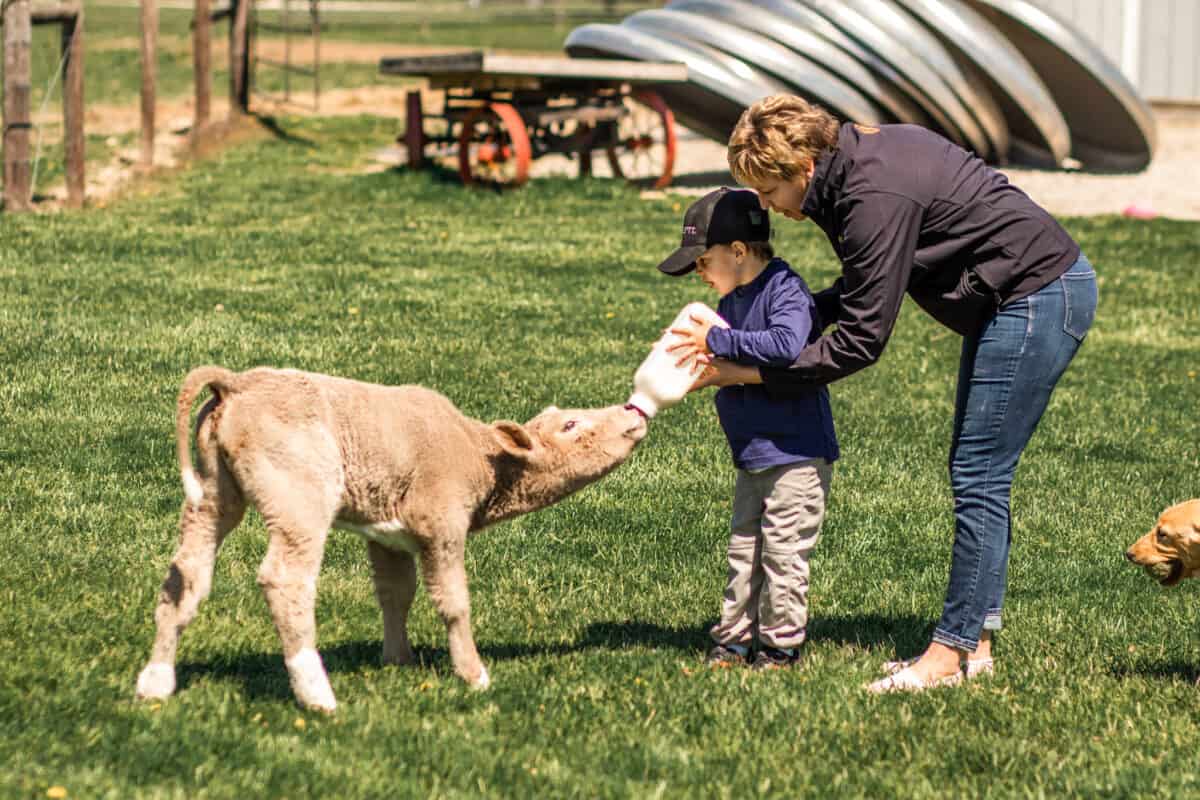
10. Play on the playground
Kids love to play on the playground. How surprised do you think they would be to see you join in?
Now let them lead. Let them show you around the place and how to use all the equipment.
At home, parents are in charge, but here on the playground, kids are the kings of the castle. Shifting the power dynamic gives them the confidence to make decisions and have fun doing it. Having you out there with them may also give them the confidence to try new pieces of equipment that they couldn’t quite manage on their own. Have fun and be silly with them, or this gives them the confidence to be themselves, and to be fun and silly too.
Confidence-boosting outdoor activities
These 10 confidence-building outdoor activities are pretty simple, but they’re powerful. You are probably doing a lot of them already. But now that you know just how important they are, try leaning into the part of the activity that increases their confidence.
Because the common threat to all of these activities is that YOU are doing them WTIH your child. Knowing they are wanted, loved, and worthy of the time you spend with them is the biggest foundational block of confidence. It is so important to remember that everything we say TO our children and everything we do WITH them is building those foundational blocks of confidence in their adult selves.
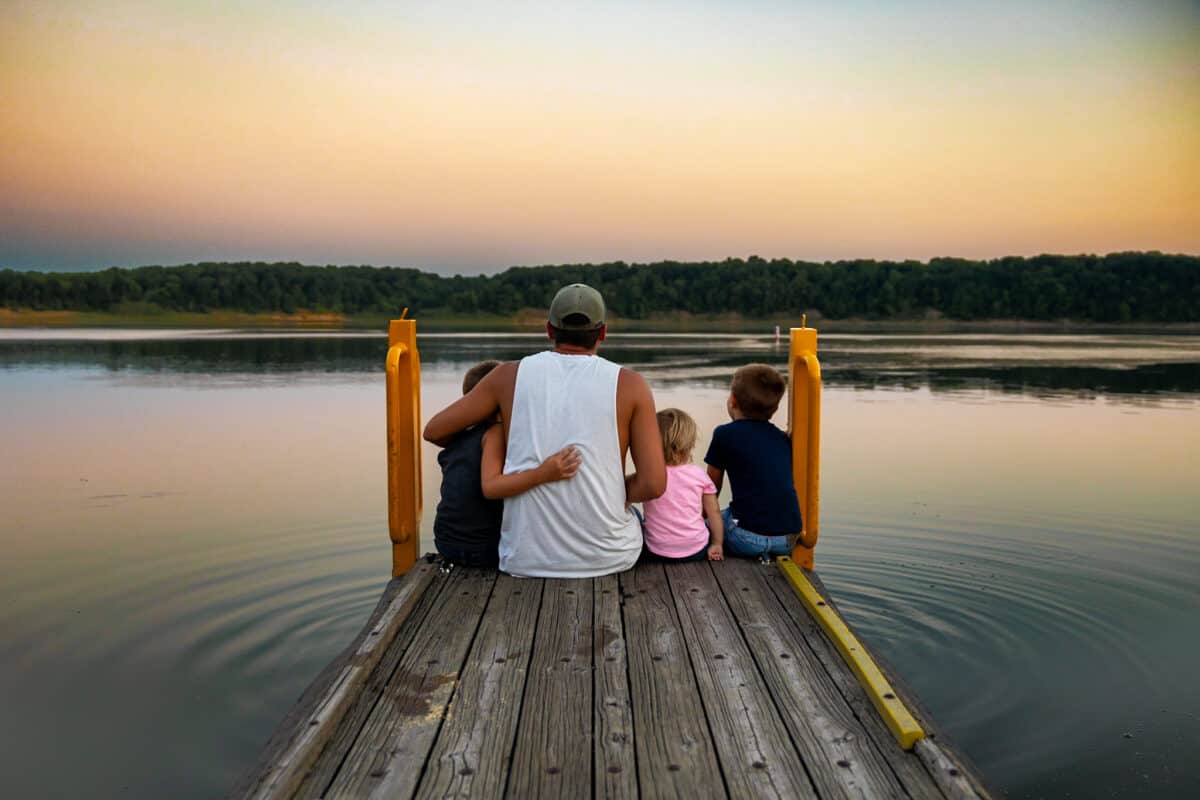
Confidence for all
You might find that playing silly games, trying new things, and practicing your own positive self-talk, might increase your own confidence too! Wouldn’t that be something? We’re learning how to be parents right along with our kids and I don’t know a single mom that wouldn’t benefit from a bit more confidence in her parenting skills.
So, get out there and have some fun WITH your kids. You can do hard things, even if the hard thing is telling yourself, you can do hard things.
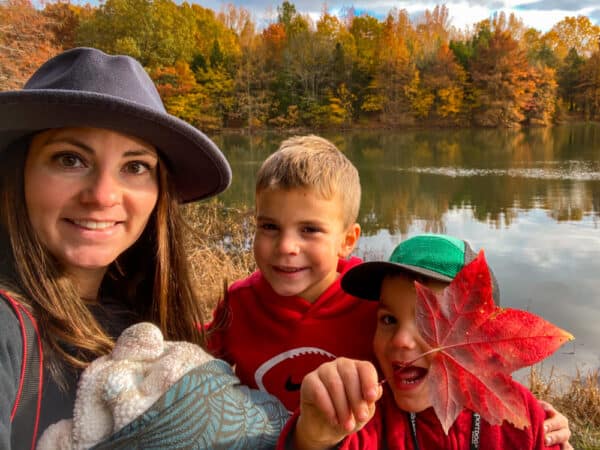
About the author
Meghan is a midwestern mom of 3 kids and one dog. She is a physical therapist assistant and family photographer. At home, Meghan and her family enjoy gardening (both indoors and outside), riding ATVs, and exploring the river behind their house. When not at home, they can usually be found at the lake or exploring Illinois state parks. Meghan’s family has always loved the outdoors, but they really found a passion for being outside and photography when her oldest son had to undergo a bone marrow transplant as a baby. During her son’s recovery, being outside became a safe place for the whole family to learn, grow, and thrive.
You can find more from Meghan online in the following locations:
Instagram: @meghangarriott
Meghan’s RWMC posts: Meghan Garriott

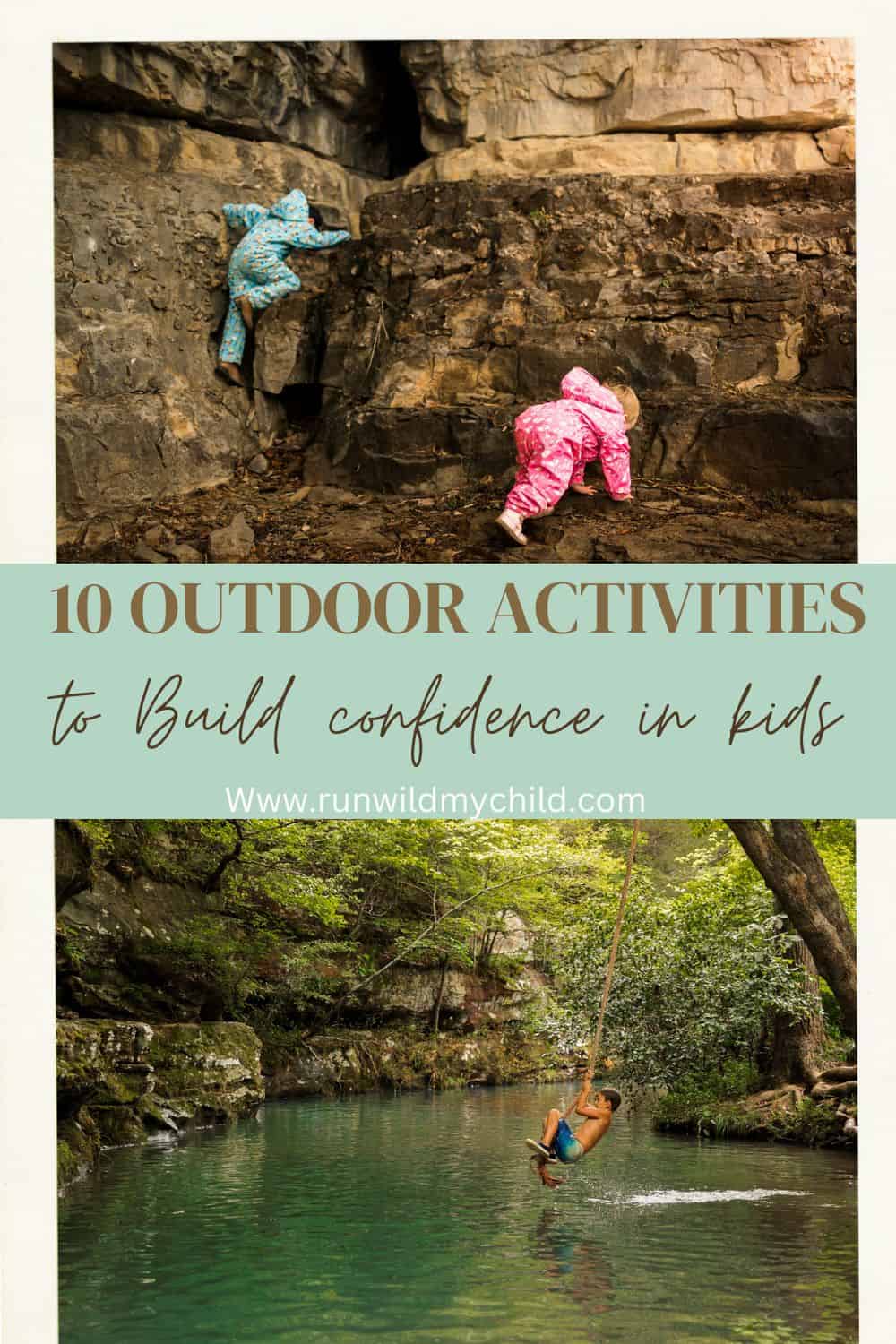
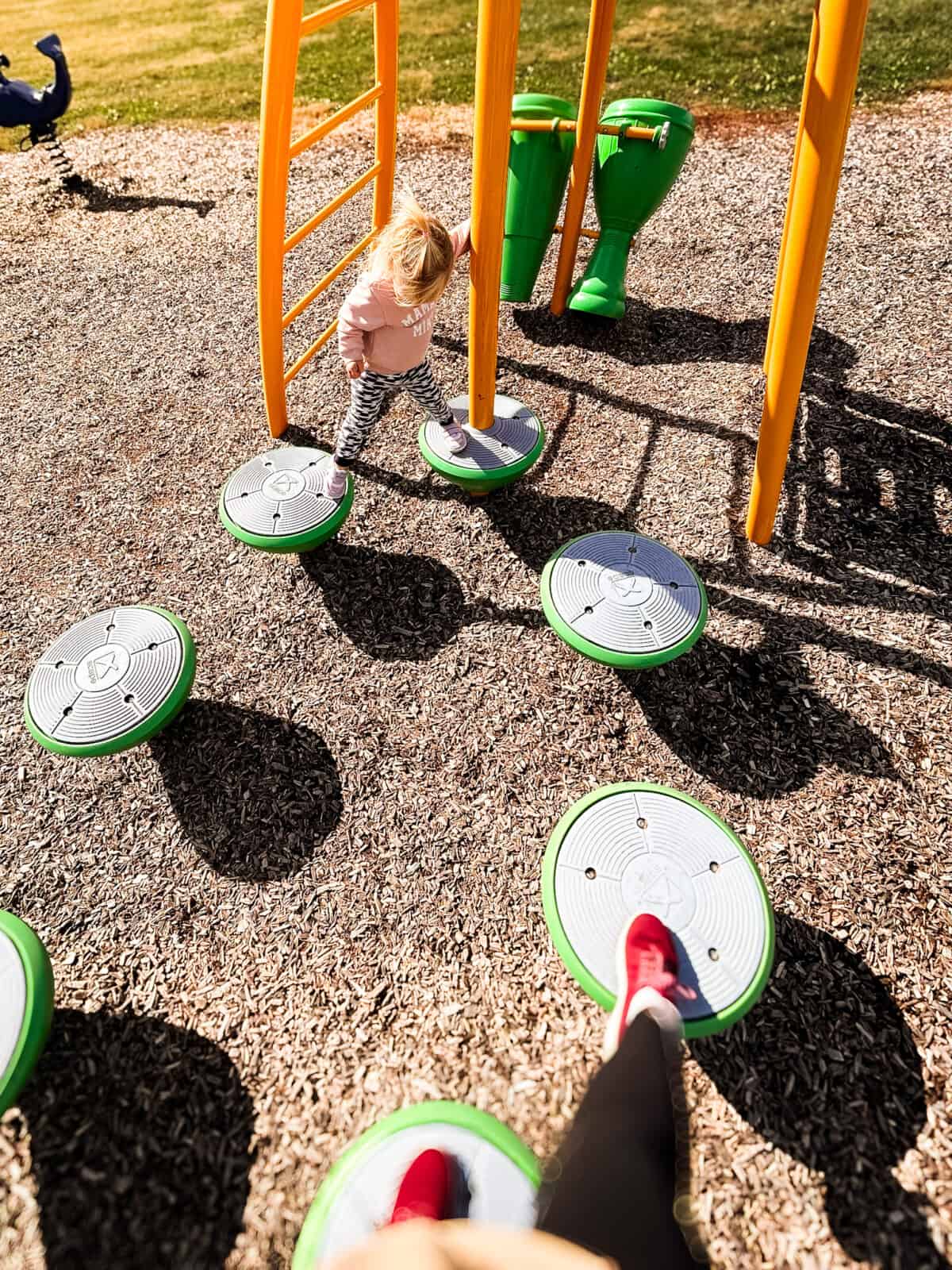
Leave a Reply